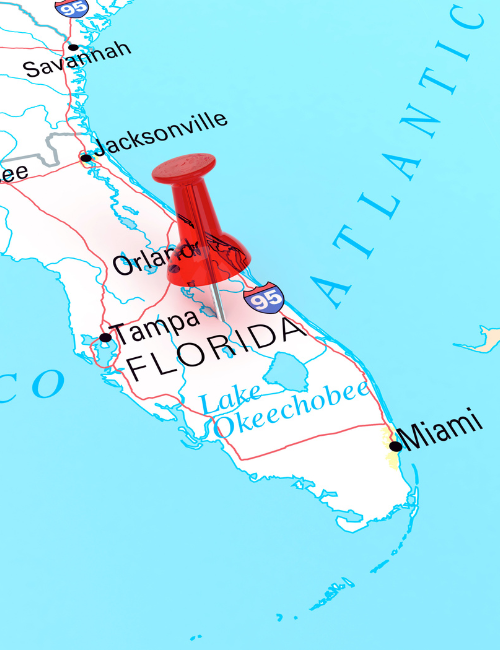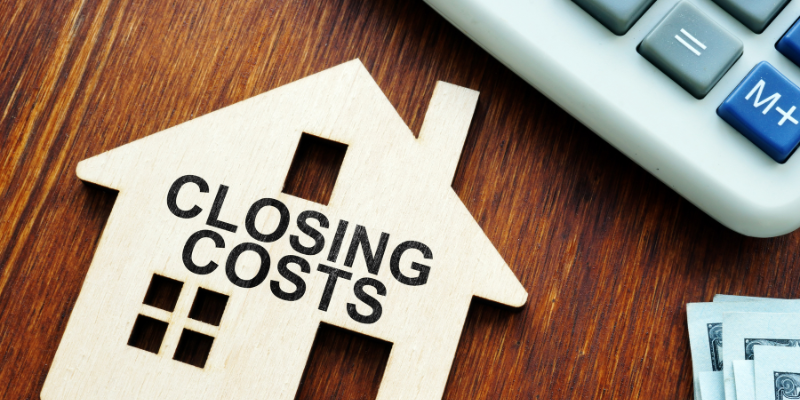
Understanding the intricacies of closing costs is essential for anyone looking to sell a home in Tampa, FL. Our comprehensive closing costs calculator is designed to provide clear insights into all potential expenses involved in the transaction process. Maximize your home’s value and ensure a smooth sale by utilizing this powerful tool, specifically tailored for Florida’s unique property market. Dive into Florida’s essential closing costs guide to demystify the financial aspects and expertly navigate closing fees, taxes, and other selling expenses. For expert guidance, the Revival Homebuyer Team can help, making your home-selling experience seamless and financially smart.
Brief Overview
In Tampa, FL, when selling, it is essential to understand the variables surrounding closing costs. The Tampa FL Closing Costs Calculator provides a valuable tool to estimate fees for title insurance, taxes, and other expenses. By using this resource, sellers can better allocate funds, optimize closing costs, and improve profitability. For expert assistance, consider working with a company that buys homes in Tampa and nearby cities to streamline your sale and minimize surprises at closing.
Key Highlights
- Anticipate and plan for surprises by understanding the costs.
- Mortgage conditions and property types are some of the many factors that affect the closing costs in Florida.
- A closing costs calculator is helpful for obtaining a breakdown of the different costs and can be used to negotiate.
- Ensure clear explanations and documentation to avoid common closing mistakes in Florida.
- Closing cost management can be improved, and hidden costs can be decreased by employing a professional.
Understanding Closing Costs in Tampa, FL
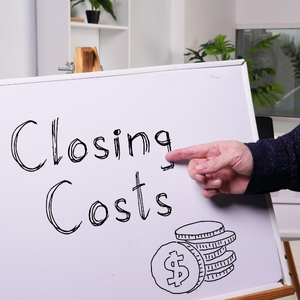
There are costs associated with all real estate transactions in Tampa, FL. Whether you’re purchasing or selling, knowing these expenses can help you be proactive instead of reactive. These costs cover various expenses, including title insurance, property taxes, and loan origination fees. Additionally, various factors can influence these costs, including the property’s location and the specific details of the mortgage loan. As you navigate the closing costs in Florida, knowing costs can help you make decisions and find ways to cut costs.
What Are Closing Costs?
Closing costs are types of charges associated with the sale of a house in Florida. The charges are mandatory and relate to the services offered by an attorney, an appraiser, title services, and a placeholder for expenses associated with property taxes and insurance. If the buyer accounts for closing costs, it will save the buyer from unbelievable financial surprises at closing and make the closing go like a breeze.
In the case of the closing expenses for buyers, there are charges; those are not continuous, and they will include interest on a loan and insurance, and for the insurance, there will be some prepaid for it. In the case of sellers, the expenses will be the commission of the real estate agent, the title insurance, and, for the titles, the insurance at the closing. Determining the closing costs helps buyers and sellers know exactly what the real estate closing costs will be, including financial closing costs.
Key Factors Influencing Closing Costs
The location, type, and value of a property will affect the closing costs of the transaction in Tampa, FL. Real estate in more expensive communities will likely command more for title insurance, property taxes, and property insurance. Knowing the attributes of the closing costs will allow the buyer and seller to better budget for the potential costs.
Closing costs will also be affected by the terms of the mortgage, the lender, and the state of the market in relation to the sale. Costs can be affected by the rate on the loan, the amount of down payment, and insurance on the loan. The state of the market will determine how aggressively negotiations can be done. Government fees and inspections will also contribute to the total cost. Knowing all these factors can help to reduce closing costs.
Using a Closing Costs Calculator Effectively
Understanding the nature of the transaction, particularly with regard to closing costs, is crucial for making informed real estate decisions in Tampa, FL. This is where a closing costs calculator has tremendous value. It helps buyers and sellers understand the range of expenses (e.g., loan origination fees, property taxes, title insurance, etc.) they must consider. This section focuses on the value of these calculators and how to use the results to your financial benefit and to your advantage so that you can be more strategic in your real estate transactions.
Benefits of a Tampa Closing Costs Calculator
A Tampa closing costs calculator enables real estate buyers and sellers to obtain a precise estimate of the closing costs associated with a real estate transaction. By entering the property’s price, the loan amount, and the applicable interest rate, the calculator will calculate the closing cost amount. This amount will eliminate guesswork and enable accurate calculations at the closing table, allowing informed budget decisions regarding closing costs to be made.
The closing cost calculators often show a breakdown of costs such as title insurance, property tax installments, and prepaid interest so that the user can see where money can be saved and where they can negotiate. When personalized to the user, mortgage cost calculators can provide vital mortgage selections to buyers and sellers so that they can make prudent and cost-effective decisions in the highly competitive Tampa real estate market.
| Calculation Elements | Benefits | Interpretation Tips |
|---|---|---|
| Loan Origination Fees | Provides budgeting transparency | Scrutinize underlying assumptions |
| Title Insurance | Offers negotiation leverage | Adjust parameters for tailored results |
| Property Taxes | Improves financial planning | Compare different scenarios for better understanding |
| Home Inspection Fees | Enhances decision-making confidence | Consult with legal or financial experts for clarity |
This table shows how a closing costs calculator can simplify and strategize a complex real estate transaction.
How to Interpret the Calculator Results
Once results have been generated from the closing cost calculator, the first step is to decompose the total estimate down into its parts, such as title insurance, loan origination, and property taxes. Getting a grasp of each line item can help keep one’s eyes open to find possible cost savings and to identify targets of negotiation with lenders and sellers.
Second, move on to the assumptions being made. By loan principal, interest rates, and payment schedules. Change each item and compare and contrast the various scenarios. This is empowering folks to create a true estimate of economic cost. Once this information is processed strategically, there will be good economic returns, as well as sound decision-making.
Navigating Florida Closing Requirements
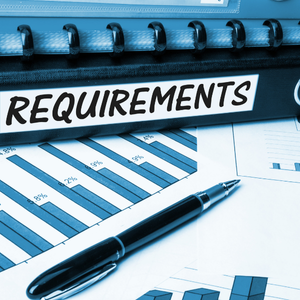
Closing a real estate transaction in Florida comes with specific procedures and costs. Florida law requires both buyers and sellers to understand the specific aspects of the state to facilitate the transaction efficiently. Understanding the different types of insurance required and the different fees is only the tip of the iceberg. This chapter will discuss the specific Florida closing aspects sellers harbor and the atypical mistakes they make to allow you to identify the necessary Florida closing aspects and guarantee that you will handle your closing process efficiently.
Unique Florida Closing Aspects for Home Sellers
There are specific obligations that Florida home sellers must comply with during the closing process. These include costs incurred by the buyer for title insurance as well as for the documentary stamp taxes on the deed. Further inspections may also be necessary, including termite inspections and flood zone assessments, which may lead to repairs or mitigation costs that affect net proceeds. Knowing these state requirements enables sellers to foresee costs and negotiate with buyers. For sellers looking to sell your Florida house faster, and in nearby cities, understanding these obligations is crucial.
Market conditions also affect the strategy. In a seller’s market, buyers tend to cover more costs. In a buyer’s market, sellers may need to be more flexible. Knowledge of the lender’s expectations and inspections, as well as Florida’s fees, allows sellers to avoid surprises during a transaction. More importantly, sellers can make the most out of the transaction.
Common Mistakes to Avoid During a Florida Closing
One common error during Florida real estate transactions is failing to budget for all closing costs. There are closing costs such as title insurance, loan origination costs, and prepaid taxes. If unaccounted for, these costs will reduce net proceeds or increase the cash required for a purchase. Buyers and sellers often miscommunicate, as do lenders, further complicated by closing documents. Buyers and sellers misplacing closing documents often results in closing surprises, and these surprises cost money.
Time is often underestimated by sellers with regard to title searches, lien removals, and the completion of any triggered repairs. If uncompleted, these all contain closing penalty damages. Buyers, if mortgage guidelines and insurance policies are poorly managed, will feel the burden of volatile costs. Florida’s closing is more complicated than that of other states, and so is its real estate. These frustrations could all be avoided.
Loans and Mortgages on Sales
Real estate transactions often involve many costs. One of the expenses sellers and buyers need to consider is the loans and mortgages and how they are going to impact the sweep of expenses. To get a better idea of how to mitigate and properly plan for costs, we are going to consider the outstanding loan to mortgage expenses. This will enable you to be more financially savvy when dealing with real estate in Florida.
Understanding Your Loan Amount and Terms
Understanding your loan amount and the associated terms of the loan is highly significant in Tampa. The loan amount speaks to your principal and, therefore, guides the determination of your monthly payments, interest owed, and closing costs. On the other hand, the term of the loan and the interest owed on the loan affect your financial obligations on a long-term basis. Fixed-rate mortgages have more predictable monthly payments, while variable rates will, most likely, have more payments that differ from one month to another, which means a high possibility of higher costs in the long run.
Points and fees associated with the loan also speak to closing costs. These charges can include origination fees and underwriting fees. Paying points and upfront costs can reduce your interest rate, which means a lower monthly payment if you plan to stay for the long haul. If you take your time to analyze the terms of a loan, you will be in a better position to negotiate the terms of the loan in such a way that you can reduce your closing costs, meaning that your decisions can affect your financial standing in both the short term and long term.
Impact of Mortgage on Your Closing Costs
Your choice of a mortgage impacts your closing costs because every mortgage has different interest rates, fees, and terms, which determine what your financial commitment is at settlement. If your mortgage has a higher interest rate, you will have higher closing costs because they will increase the monthly payment, increase the escrow deposit, increase the origination fee, and have higher lender charges. If you get a mortgage with lower fees and understand what closed lender requirements you can avoid, like Private Mortgage Insurance (PMI), you can save on closing costs.
Amortization of the loan has a cost impact as well. Shorter amortization on a mortgage has lower overall interest paid but will have higher monthly payments. A longer amortization period will have lower monthly payments, but your total interest paid will be higher on the mortgage. To be effective in closing cost management and negotiation on loan terms in the Tampa real estate market, you will have to analyze interest rates, lender costs, and fee structures comprehensively.
The section offers tips for managing Florida mortgage closing costs. Consider these strategies:
- Compare mortgages to find the best interest rate-term ratio.
- Find competitive lender fees to cut costs.
- Assess the need for PMI, especially for low-down-payment scenarios.
- Select a loan term that meets your financial goals and lowers costs.
- Look for ways to negotiate lender terms to fit your budget.
- Consider the tax and insurance implications of escrow deposits.
- Keep up with market changes that could affect your mortgage.
Planning and informed decisions can reduce closing costs and improve your home-buying experience.
Effective Ways to Minimize The Costs Related To Closing
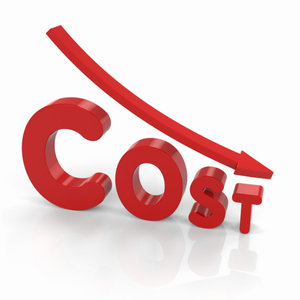
In Florida, reducing closing costs in the real estate business is imperative. By utilizing strategies such as a cost calculation tool and expert cost services, buyers and sellers can more effectively manage these costs. The knowledge needed to manage these costs significantly affects the negotiation ability in securing more favorable terms for the clients. The ability to manage miscellaneous fees, the expert buyers and sellers, and the bottom-line closing costs can be more operational and cost-effective, and the closing costs can be effective.
Effective Strategies to Minimize Expenses
The first step to reducing your closing costs is to understand the various fees and identify areas where you may be able to negotiate the cost. Take a look at your Good Faith Estimate (GFE) to identify such costs as title insurance, loan origination, and prepaid interest. Consider communication with lenders to see if you can negotiate the costs or get discounts. Also, tailor closing dates to the end of the month to help lower prepaid interest and closing costs.
Understanding the Tampa Market can help you minimize costs. Buyers and sellers can use the market to negotiate alterations that may help reduce closing costs or improve deal terms. A good closing costs calculator is helpful to know how much you will need to spend to make an educated decision for the costs you will need to negotiate. Real Estate transactions can be made much more efficient and cost-effective with a proactive approach and the right planning.
Seeking Professional Assistance for Cost Reduction
Reducing closing costs in Florida real estate transactions may require professional intervention. Real estate attorneys and financial consultants can detail and clarify complex terms, identify and remove hidden costs, and document title insurance line item charges. Their professional know-how and patent skills ensure adequate documentation of costs, which assists in resolving disagreements and providing an understanding of costs that may be eliminated.
The professionals also have a scope of lender fees, and their ability to analyze, identify, and streamline lender fees motivates complex cost reduction at no cost to you. Their ability to use a closing cost calculator to create and analyze cost scenarios provides cost-saving mortgage advice. The professional assistance helps in cost allocation and cost saving in Tampa real estate transactions.
Tampa sellers must understand closing costs to successfully sell their property. With our guide and calculator, you can estimate expenses, plan finances, and negotiate confidently, ensuring a smooth transaction. Minimize unexpected costs and maximize your profits by using our extensive resources. For expert guidance and personalized support throughout your sale, contact us today and take the first step toward a successful Tampa home sale.
Need to sell your Tampa home? If you want to sell quickly, avoid costly repairs, or have a smooth process, Revival Homebuyer can help. Use our Tampa, FL, Closing Costs Calculator to estimate costs and make decisions. We make fair cash offers, handle all details, and streamline the process. Want to sell or have questions? A no-obligation quote is available at (813) 548-3674. Get started now!
FAQs
What are closing costs, and why are they important when selling a home in Tampa, FL?
Transaction closing costs are property transaction expenses. Title insurance, taxes, and administrative fees are included. These costs must be understood to budget, maximize profits, and ensure a smooth sale.
How can the Tampa, FL Closing Costs Calculator assist sellers?
The calculator details title insurance, taxes, and loan origination fees. These insights help sellers budget, navigate the transaction process, and make cost-effective decisions.
Which factors affect Tampa closing costs?
Closing costs depend on property type, value, mortgage terms, and state regulations. These costs also depend on market conditions and negotiations.
Why should sellers ensure clear property titles?
Title insurance and clear property titles are essential to avoid legal issues. The buyer’s property interest and a smooth transaction depend on this coverage.
How does a closing cost calculator help?
By listing taxes, title insurance, and fees, a closing costs calculator provides transparency. It allows precise budget planning, negotiation leverage, and a well-prepared transaction process, minimizing closing financial surprises.
Helpful Tampa Blog Articles
- Tampa, FL, Capital Gains Tax Calculator
- Capital Gains Tax After Selling a House in Tampa, FL
- Selling a House with Solar Panels in Tampa, FL
- How Long to Stay in a Tampa, FL, Home Before Putting It on the Market
- Fun Facts Highlighting What Makes Tampa, FL, Special
- Sell A House With Asbestos In Tampa, FL
- Tampa, FL, Cost of Living
- Taxes When Selling an Inherited House in Tampa, FL
- Do I Need a Lawyer to Sell My House in Tampa, FL?
- Can I Sell My House If I’m Behind on Payments in Tampa, FL?
- Can the Executor of a Will Sell Property in Tampa, FL?
- Can You Sell a House As-Is Without Inspection in Tampa, FL?
